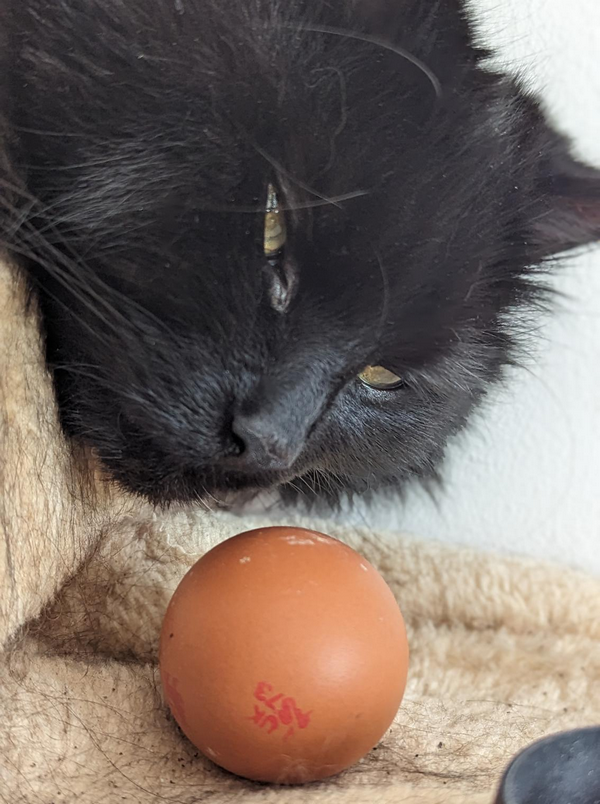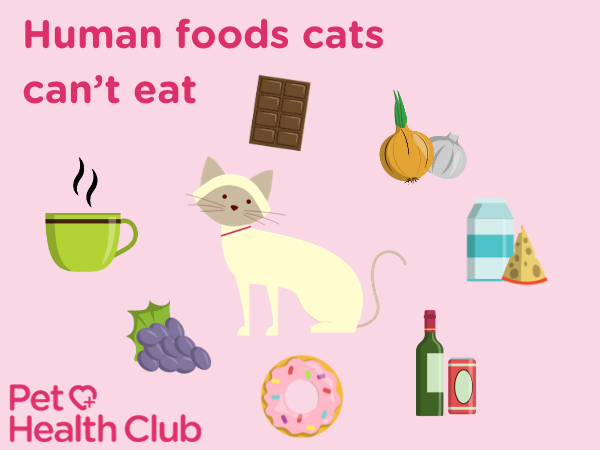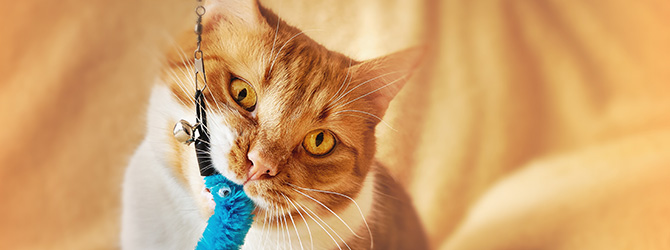13 human foods you can feed your cat (and 7 you definitely can’t)
With their curious nature, cats often want to have a little taste of our dinner. While it's tempting to share our meals, knowing which human foods are safe for cats and which can be harmful is essential. This article delves into a list of human foods your cat can safely enjoy and those that must be avoided to ensure they stay healthy and happy.
Brief summary
Cats are obligate carnivores, meaning that their diet must consist primarily of meat. However, there are a few human foods that are safe for cats to eat in moderation.
Here is a list of some human foods that are safe for cats:
- Cooked chicken, turkey, beef, fish, and lamb are all good sources of protein for cats
- Eggs are another good source of protein for cats, but they should be cooked thoroughly before serving
- Some fruits, such as bananas, blueberries, cantaloupe, and watermelon, are safe for cats to eat in moderation
- Some vegetables, such as carrots, cooked green beans, and peas, are safe for cats to eat in moderation
- Whole grains, such as cooked brown rice and oatmeal, are safe for cats to eat in moderation
It is important to note that some human foods can be toxic to cats. Chocolate, grapes, raisins, onions, garlic, and chives are just a few of the human foods that cats should never eat.
What human foods can cats eat?
1. Cooked lean meat
Cats need a diet that’s high in meat because they are known as ‘obligate carnivores’ - they rely on animal products for essential nutrients. This means you can treat your cat to some lean, cooked beef or chicken as a healthy snack. However, you must remove any seasonings or sauces before you do. Cats can be sensitive to certain spices, and others, like garlic and onion, are toxic, so it's important to only feed them plain meat. Avoid fatty meats which may upset their tummy.
2. Cooked fish
Fish, rich in important omega-3 fatty acids, is another food your cat would love to share. However, it should always be cooked to kill any potential parasites. It’s important to note that some fish, such as tuna, mackerel, and swordfish, contain high levels of mercury, which can be dangerous if your cat eats large amounts in a short time. Plain, boiled white fish is a safe bet and very tasty for your cat.
3. Eggs

Scrambled or hard-boiled eggs can be a healthy treat for cats, providing a good source of protein. However, raw eggs should be avoided due to the risk of salmonella. Eggs are also a great way to sneak in some extra protein into their diet, but they’re quite high in calories so small amounts are best.
4. Cucumbers
While not all cats are fans of vegetables, cucumbers can be a great source of vitamins and hydration if your cat likes them. Always cut cucumbers into small pieces to prevent choking and feed in moderation.
5. Steamed broccoli
This fresh, crunchy vegetable is packed with antioxidants. When served in moderation, it can be a healthy addition to your cat's diet. Again, remember to cut the broccoli into small pieces.
6. Peas
Peas can be a good source of fibre for cats. However, they should be removed from the pod before serving to help your cat digest them.
7. Bananas
Though bananas are a healthy snack for humans, they should be given to cats in moderation because they have a lot of sugar in them. Like humans, cats need to watch their sugar intake, so it's important to be aware of the risks when feeding them bananas. Try a small slice or two for a cat-sized serving.
8. Blueberries
These can be a fun and healthy treat for cats. However, like bananas, they should be served in small amounts because of their high sugar content. Two or three blueberries is a good portion size for a cat.
9. Watermelon
This fruit can be hydrating for cats, but it's also high in natural sugars, so it should be served in moderation (one or two small chunks). The fruit is a seasonal treat, so make sure to stock up when it's available.
10. Apples
Peeled apples can be a tasty, crunchy treat for cats. However, the skin can contain pesticides, so make sure you peel it before giving it to your cat. Wash the apples thoroughly and use a kitchen knife or potato peeler to remove the skin. Avoid giving the seeds, stem and leaves, which all contain small amounts of the toxin cyanide.
11. Rice
Brown rice can be a good source of important cat nutrients, including fibre and antioxidants. However, it should be served in moderation as cats need a mainly meat-based diet.
12. Oatmeal
This whole grain is high in healthy protein and fibre, and can be a good addition to your cat's diet when served in moderation.
13. Spinach
Spinach is a relatively rich source of vitamins, and can be fed to most cats in small amounts. However, it should be avoided if your cat has a history of urinary issues, as it can cause crystals to form in their bladder and urinary tract.
Human foods that are toxic to cats
While there are many healthy foods for cats, there are certain foods you must avoid if you want to keep your cat healthy.
1. Onions and garlic
Any plants from the onion family - including garlic and shallots - can cause gastrointestinal irritation, vomiting, nausea, and diarrhoea. They can also cause the destruction of red blood cells, leading to anaemia which can be very serious.
2. Chocolate
Theobromine and caffeine, which are toxic to cats, are both found in high concentrations in chocolate. The symptoms can include vomiting, diarrhoea, rapid breathing, and seizures.
3. Grapes and raisins
Members of the grape family, including raisins, currents and sultanas, shouldn’t be given to cats. They can cause kidney failure, even in small amounts.
4. Alcohol
Cats cannot tolerate alcohol at all. Even small amounts can cause severe liver and brain damage.
5. Caffeine
Found in coffee, tea, and some energy drinks, caffeine can cause rapid breathing, heart palpitations, and muscle tremors in cats.
6. Xylitol (Birch Sugar)
This artificial sweetener in some sugar-free products like sugar-free sweets, chewing gum and peanut butter can cause liver failure and hypoglycemia in dogs. Although less well-known, it is possible that the same effects may occur in cats, so it’s best to err on the side of caution.
7. Dairy products
Despite what cartoons show us, many cats can’t tolerate daily products such as milk, cheese, yoghurt and butter. Adults cats are usually lactose intolerant, so dairy can cause digestive problems like diarrhoea.

Feeding Tips
Cats should be fed a complete and balanced diet which is suitable for their age and lifestyle. Giving a little treat occasionally is absolutely fine, but keep an eye on portions, a small amount for a human is often a huge portion for a cat! Remember, treats, including human food, shouldn't make up more than 10% of their daily calories - this is to keep them from gaining too much weight and to avoid nutritional imbalances.
Be cautious with allergies when trying out new foods. Try one new food at a time, in small amounts, and keep an eye on your cat for signs like vomiting or skin issues. Choose organic and non-GMO foods when possible to limit their exposure to harmful substances. If you're thinking about homemade food, have a chat with your vet to make sure you're getting the balance right.
Introduce new foods gradually to avoid an upset stomach. Go for healthier cooking methods—like steaming or baking—rather than adding salt or spices. Before making any food changes, weigh up the pros and cons, including the nutritional value and possible allergies. If your cat can't have a certain food, look for other options that provide similar benefits.
Make mealtimes more engaging by tapping into your cat's natural hunting instincts. Consider the use of puzzle feeders and treat balls, or hide treats around the home to encourage both mental and physical activity.
When it comes to treats or new foods, always proceed with caution. Some human foods may be fine as an occasional treat, but others could be dangerous. Stay informed about what's safe and what's not for your cat. If you're unsure, it's always best to consult your vet.
Before making any big decisions about your cat’s diet, it’s a good idea to take them to see the vet or registered vet nurse. They will be able to give advice on diet and exercise that is tailored to your specific cat.
Find your nearest vet using our Find a Vet page, or speak to a vet online using Online Vets.




